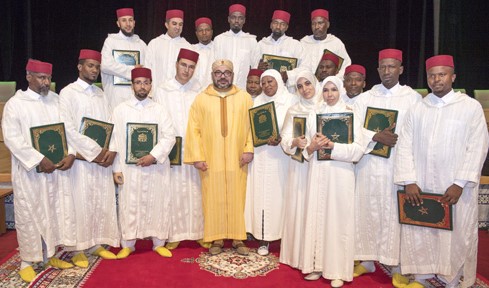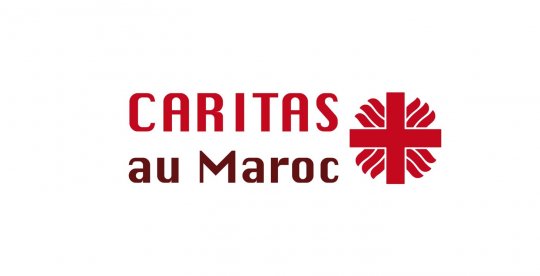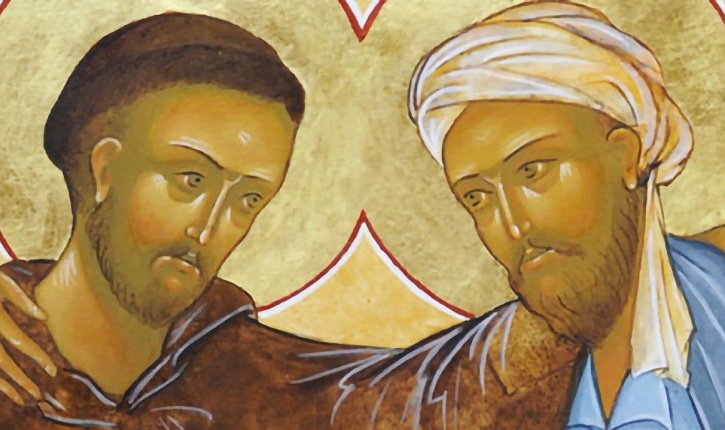After the successful visit of Pope Francis to the Arabian Peninsula, where he, together with the rector of 'al-Azhar' signed a joint Document, the Pope will leave for Morocco tomorrow. In this North African country, he will visit the Institute, which trains Islamic preachers (women and men), and will also meet with migrants who ended up in Morocco on their way to Europe.
Tomorrow, March 30, the official visit of the Pope Francis to the Kingdom of Morocco will begin. The visit, which will last 2 days, includes a meeting with the King of Morocco, Mohammed VI, a visit to the mausoleum of King Mohammed V, a meeting with the Catholic priests of Morocco, and a mass.
In addition to the official and expected protocol meetings, Francis will make two visits, important in the context of the Document signed in the United Arab Emirates together with the rector al-Azhar Sheikh at-Teyib. Recall that in that Document special attention was paid to the rights of women, minorities, inter-religious dialogue and countering extremist views.
Female preachers and secular scientific knowledge
On the evening of March 30, the Pope will visit the Institute for the Training of Imams, Preachers and Preachers (Morchidines and Morchidates) in Rabat. This Institute, which was opened by Mohammed VI in 2015, was organized thanks to the cooperation of Morocco and France. The institute trains imams not only for African countries, but also aims to promote religious moderation, tolerance and the fight against violent extremism in France. The institute is considered very progressive for modern Muslim universities in Arab countries. And there are two reasons for this.
First, at the Institute, special attention is paid to the training of Muslim women preachers (called morchidates in Morocco). Since this Institute was created against the background of the aggravation of the problem of Islamic extremism, raising the status of women in spite of radical fundamentalism is of particular importance.
And it is worth noting that the fruits of such training are already visible today. In modern Morocco, Islamic women preachers were able to give spiritual guidance not only to other women, but also to young people in mosques, schools, orphanages, hospitals, prisons and villages, thereby breaking gender stereotypes.

Secondly, this Institute became known for the fact that in addition to studying religious sciences, its educational program places great emphasis on the humanities, such as history, geography, philosophy, psychology and sociology, that is, the sciences that teach critical thinking.
Thus, the Institute for the Training of Imams, Preachers and Preachers is intended to destroy the stereotype that religious education and critical thinking are incompatible. That is why this institution, according to the leadership of Morocco, is called upon to play a leading role in the fight against religious radicalism and extremist interpretations of Islam.
Minority issues
The second place, which Pope Francis plans to visit in Rabat, is the Caritas Migrant Adaptation Center (Caritas). The center is known for helping migrants who came to Morocco hoping to reach Europe, but ended up living in this North African country.
Interestingly, Caritas is an international charitable Catholic organization created in the XIX century, and which has its offices in many countries on all continents.
In Morocco, this organization has existed for almost 100 years, and it take up the problem of migration since the 1990s, when a large number of immigrants from sub-Saharan countries arrived in this country. The Caritas Center in Morocco pays great attention to promoting the rights of migrants by providing them with access to services such as health and education, as well as their overall integration and employment in the Kingdom of Morocco.

Much of the migrants who came to Morocco from tropical Africa are not Muslim. Therefore, using their example, we see that the problem of the integration of migrants and minorities (in Morocco, 99 percent of the population consider themselves Muslims) is relevant not only for Western European countries.
In this context, it is clear why in a joint Pope Document with Rector Al-Azhar Sheikh Ahmad Al-Teyib, the issue of minorities was raised, or rather the rejection of the term “minority” as discriminatory. The issue of integration and adaptation of Christian migrants in a Muslim context is relevant for the Kingdom of Morocco and the United Arab Emirates.
Two Francis
The upcoming visit is another opportunity for the Pope to talk about the Islamic-Christian dialogue. And it is not by chance that Francis makes two visits to Islamic countries at the beginning of 2019. The fact is that the year 2019 was celebrated by the Pope as the 800th anniversary of the meeting of St. Francis of Assisi and the Sultan al-Malik al-Kamil from Egypt.
The fact of the meeting in 1219 of Francis of Assisi, the founder of the Franciscan Order, with the sixth sultan from the Ayubid al-Malik al-Kamil dynasty, which took place at the wave of crusades, today is indeed a reason to talk about the Islamic-Christian dialogue. And the Pope, who, by the way, is also called Francis, against the background of new problems of the so-called “clash of civilizations”, seeks to use the fact of such a symbolic meeting in the past to search for new platforms of interaction between Muslims and Christians.
In the main photo: an engraving of Francis of Assisi and the Sultan al-Malik al-Kamil
